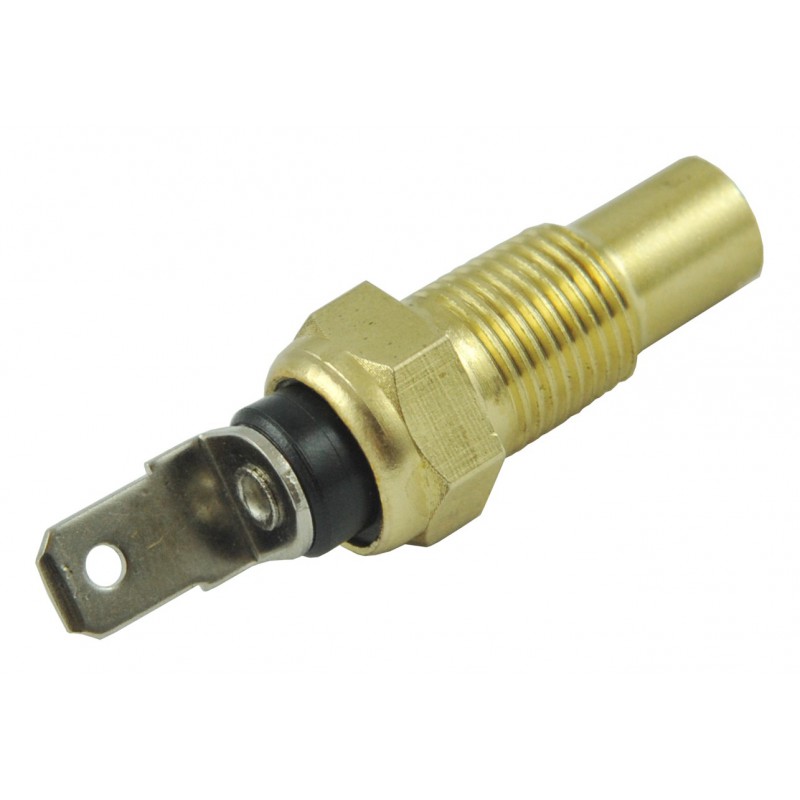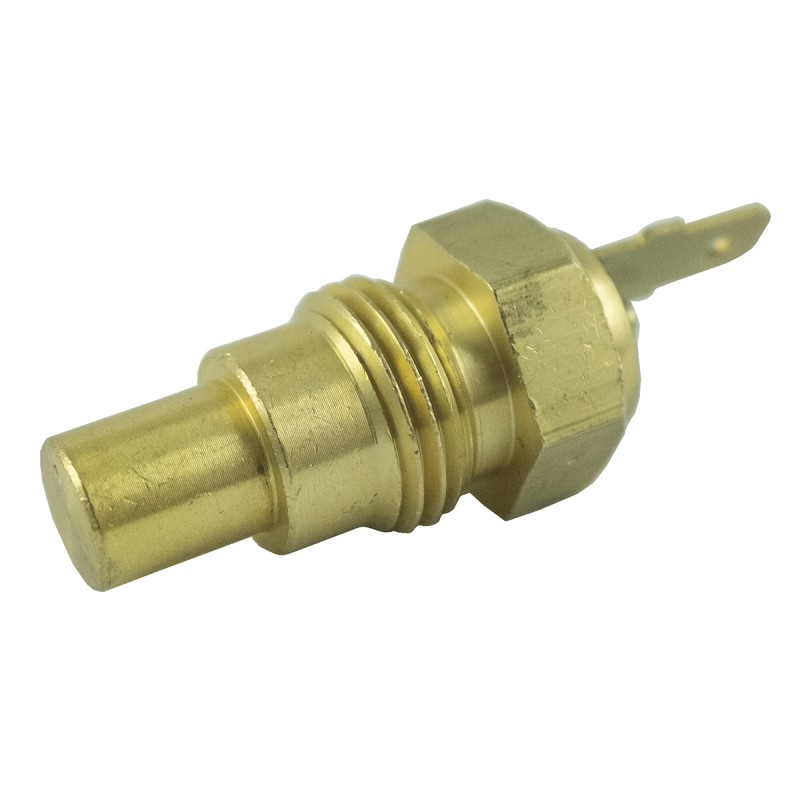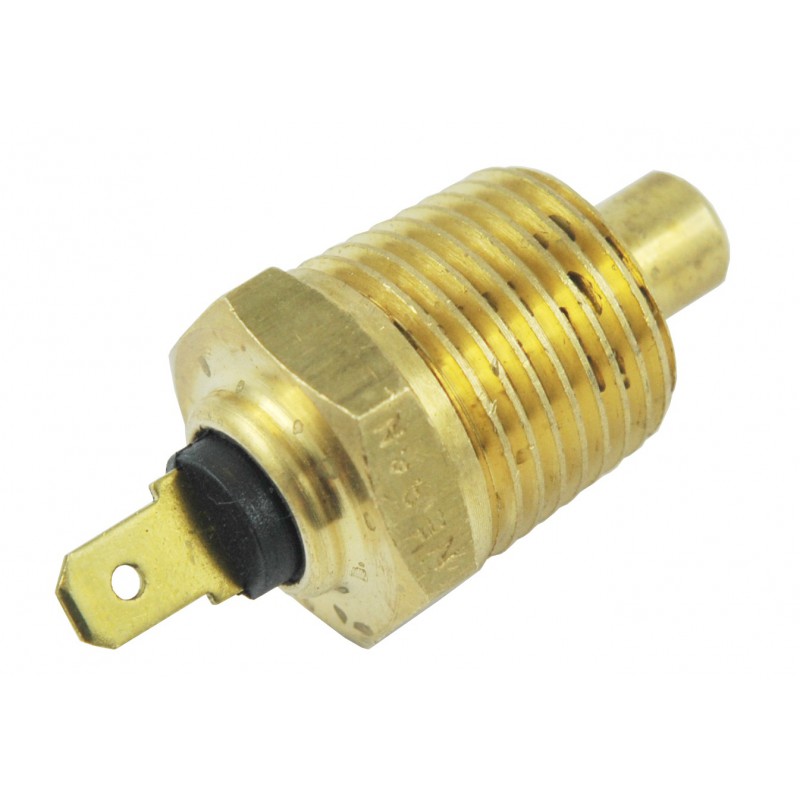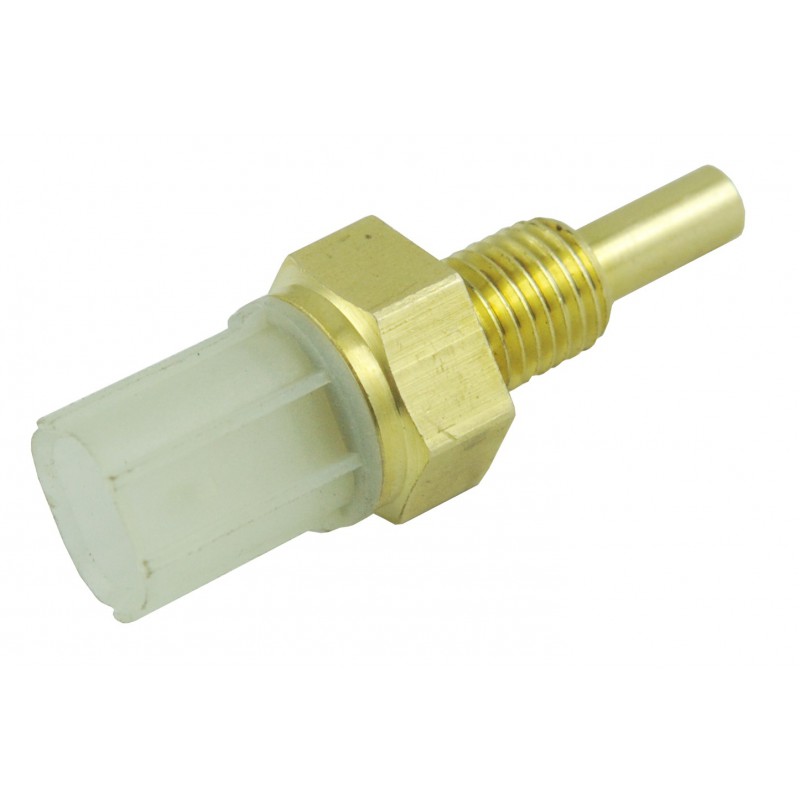zł783.25
Sort by:
Showing 1-12 of 29 item(s)
zł645.92
zł111.76
zł100.00
zł49.00
zł175.00
zł79.99
zł65.00
zł135.68
zł130.00
zł150.00
zł99.00
Temperature sensors
The temperature sensor (often called the coolant temperature sensor or engine temperature sensor) is a component that monitors the temperature of the coolant in the engine and communicates this information to the engine control unit (ECU) or the temperature gauge on the dashboard. This allows the system to continuously adjust various engine parameters to ensure efficient operation.
How does a temperature sensor work?
Temperature measurement :
- The sensor consists of a thermally sensitive element, usually a thermistor, which changes its properties (resistance) depending on temperature. In most cases, the sensor resistance decreases as the temperature increases and increases as the temperature decreases.
- The resistance changes are converted into an electrical signal that is sent to the ECU.
Transmission of signals :
- Based on the received data, the ECU controls various systems, e.g. fuel injection, ignition timing, cooling fan speed and the operation of the vehicle's heating system.
- In some vehicles, the temperature sensor is also connected to a gauge on the dashboard that informs the driver of the current engine temperature.
Types of temperature sensors
Engine Coolant Temperature sensor (ECT) :
- It is the most commonly used type of sensor and is responsible for monitoring the temperature of the coolant in the engine cooling system.
- Its data is used to regulate the operation of the engine and cooling fan.
Intake Air Temperature sensor (IAT) :
- Measures the temperature of the air entering the engine, allowing for better adjustment of the fuel-air mixture.
The importance of the temperature sensor
- Optimal engine performance : Sensor data helps maintain optimal engine operating temperature, which is crucial for fuel savings and reduced wear on engine parts.
- Engine parameter regulation : Based on information from the sensor, the ECU controls elements such as cooling fan speed, fuel dose and ignition timing.
- Driver Warning : The temperature sensor can also warn the driver if the engine is overheating, which can prevent serious damage.
Symptoms of a damaged temperature sensor
- Unrealistic readings : If the temperature gauge on your dashboard shows a low temperature even after a long drive, or a high temperature right after starting, there may be a problem with the sensor.
- Increased fuel consumption : A damaged sensor can cause the fuel mixture to be too rich or too lean, which will affect combustion efficiency.
- Engine overheating : In extreme cases, if the ECU does not receive the correct data, the engine can overheat.















